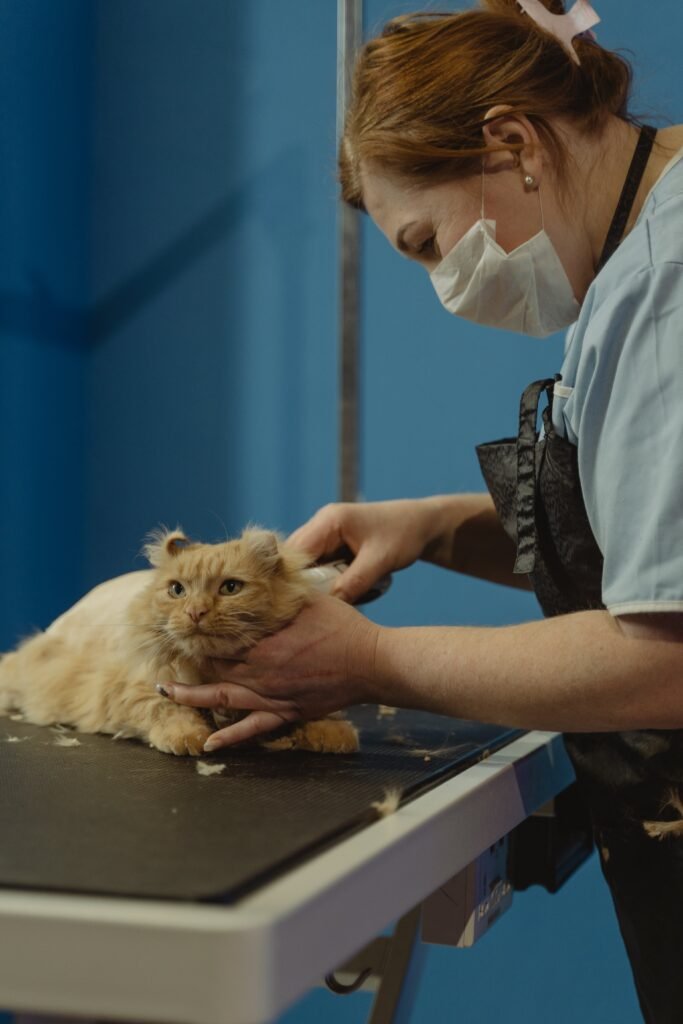Introduction
Cancer is a word that no pet owner wants to hear, but unfortunately, it’s a reality for many dogs. Understanding the common reasons behind cancer in dogs is crucial for pet owners who want to take proactive steps to protect their furry companions. This blog dives deep into the various factors contributing to cancer in dogs, helping you better understand the risks and how to mitigate them.
Understanding Canine Cancer
What is Cancer in Dogs?
Cancer in dogs, much like in humans, refers to the uncontrolled growth of abnormal cells in the body. These cells can form tumors, invade surrounding tissues, and sometimes spread to other parts of the body (metastasis). Dogs can develop various types of cancer, including lymphoma, mast cell tumors, osteosarcoma (bone cancer), and hemangiosarcoma (cancer of the blood vessels). Every kind has distinct traits, indications, and available therapies.
How Common is Cancer in Dogs?
Cancer is, unfortunately, quite common in dogs, particularly as they age. It’s estimated that around 1 in 4 dogs will develop cancer at some point in their lives, with the risk increasing significantly in dogs over the age of 10. In fact, cancer is the leading cause of death in older dogs, much like it is in humans. This high prevalence highlights the importance of understanding the factors that can lead to cancer in our pets.
Genetic Factors
Breed-Specific Risks
Some dog breeds are more predisposed to cancer due to their genetic makeup. Breeds like Golden Retrievers, Boxers, Rottweilers, and Bernese Mountain Dogs are notorious for having higher rates of certain cancers. For example, Golden Retrievers are particularly prone to hemangiosarcoma and lymphoma, while Boxers are more likely to develop mast cell tumors. These breed-specific risks underscore the importance of choosing a reputable breeder who screens for genetic conditions and maintaining regular veterinary care for early detection.
Inherited Gene Mutations
Just as with humans, dogs can inherit gene mutations that increase their risk of developing cancer. Certain mutations, such as those affecting the p53 tumor suppressor gene, can make a dog more susceptible to cancer. While not all genetic factors are well understood, research is ongoing to identify specific genes associated with an increased cancer risk in dogs. For pet owners, understanding your dog’s genetic background can help in taking preventive measures.
Environmental Factors
Exposure to Toxins
Dogs, like humans, are vulnerable to environmental toxins that can increase their risk of developing cancer. Common household chemicals, such as pesticides, herbicides, and cleaning agents, can be harmful if ingested or inhaled by dogs. Outdoor toxins, including air pollutants and contaminated water, can also contribute to cancer risk. Reducing your dog’s exposure to these harmful substances is an important step in cancer prevention.
Secondhand Smoke
Secondhand smoke isn’t just dangerous for humans; it’s also harmful to dogs. Studies have shown that dogs exposed to tobacco smoke are at a higher risk of developing lung cancer and other respiratory issues. Dogs with longer snouts, like Greyhounds and Collies, are particularly susceptible to nasal cancers caused by secondhand smoke. To protect your dog, it’s best to maintain a smoke-free environment in your home and car.
Diet and Nutrition
Poor Quality Diets
A poor diet lacking in essential nutrients can weaken a dog’s immune system, making them more vulnerable to cancer. Processed foods with low-quality ingredients and artificial preservatives can contribute to the development of cancer over time. Feeding your dog a balanced diet rich in antioxidants, vitamins, and minerals can help bolster their immune system and reduce cancer risk. Opting for high-quality, natural dog food or even preparing homemade meals can make a significant difference in your dog’s overall health.
Obesity and Cancer Risk
Obesity is a significant risk factor for many diseases in dogs, including cancer. Excess body fat can create an inflammatory environment in the body, which may promote the growth of cancer cells. Obese dogs are more likely to develop cancers such as mammary tumors and bladder cancer. Keeping your dog at a healthy weight through a balanced diet and regular exercise is one of the most effective ways to reduce their cancer risk.
Age and Cancer
Age-Related Cancer Risks
Dogs are more likely to get cancer as they become older. This is because the natural aging process involves the accumulation of cellular damage over time, which can lead to the formation of cancerous cells. Senior dogs are more susceptible to cancers such as lymphoma, osteosarcoma, and hemangiosarcoma. Regular veterinary check-ups become even more critical as your dog gets older, allowing for early detection and intervention.
Early Detection in Older Dogs
Early detection is key to improving the prognosis for dogs with cancer. Pet owners should be vigilant for signs of cancer, such as unexplained lumps, changes in appetite, weight loss, or lethargy. It’s critical to contact your veterinarian right away if you observe any of these signs. Regular screenings, including blood tests and imaging, can help catch cancer in its early stages when it’s most treatable.
Hormonal Factors
Spaying and Neutering
Spaying and neutering can have a significant impact on your dog’s cancer risk. Spaying females before their first heat cycle drastically reduces the risk of mammary tumors, one of the most common cancers in female dogs. Neutering males can reduce the risk of testicular cancer and potentially decrease the risk of prostate cancer. However, the timing of these procedures is important, and discussing the best time to spay or neuter your dog with your veterinarian is crucial.
Reproductive Hormones
Hormones play a significant role in the development of certain cancers. In females, the hormones produced during heat cycles can increase the risk of mammary tumors. In males, high levels of testosterone can contribute to the development of prostate cancer. Managing your dog’s reproductive health through spaying or neutering can help mitigate these risks and promote a longer, healthier life.
Immune System Health
Weakened Immune System
A healthy immune system is essential for protecting your dog against cancer. Dogs with weakened immune systems, whether due to age, chronic illness, or poor diet, are more vulnerable to developing cancer. Immunosuppression can prevent the body from effectively fighting off abnormal cells, allowing cancer to take hold. Ensuring your dog maintains a robust immune system is key to preventing cancer.
Strengthening the Immune System
You can support your dog’s immune system through a combination of diet, supplements, and lifestyle choices. Providing a diet rich in antioxidants, such as vitamins C and E, can help protect cells from damage. Regular exercise, adequate sleep, and minimizing stress also contribute to a strong immune system. Additionally, certain supplements, such as omega-3 fatty acids, can have anti-inflammatory properties that support overall health.
Viruses and Infections
Viral Causes of Cancer in Dogs
Certain viruses and infections can lead to cancer in dogs. For example, the canine papillomavirus can cause warts that, in some cases, may develop into cancerous tumors. Other infections, such as those caused by bacteria or parasites, can cause chronic inflammation that increases the risk of cancer. Understanding the role of infections in cancer development is important for prevention.
Preventing Virus-Related Cancers
Vaccination is a crucial tool in preventing virus-related cancers in dogs. Keeping your dog up-to-date on their vaccinations, including those for viruses like canine papillomavirus, can help reduce their risk of developing cancer. Regular health screenings and prompt treatment of infections can also prevent the chronic inflammation that can lead to cancer.
Preventive Measures
Regular Veterinary Check-ups
One of the most effective ways to protect your dog from cancer is through regular veterinary check-ups. Early detection is key to successful treatment, and regular visits allow your vet to monitor your dog’s health and catch any potential issues early. During these check-ups, your vet may perform blood tests, ultrasounds, or other diagnostic procedures to detect cancer before it becomes advanced.
Healthy Lifestyle Choices
Maintaining a healthy lifestyle for your dog is essential in reducing their cancer risk. This includes providing a balanced diet, regular exercise, and minimizing exposure to toxins. Tailoring your dog’s diet and lifestyle to their specific needs, such as their breed, age, and genetic predisposition, can go a long way in preventing cancer. Simple changes, like switching to natural cleaning products or ensuring your dog has plenty of fresh air, can make a big difference.
Conclusion
Cancer in dogs is a multifaceted issue, influenced by genetics, environment, diet, and more. While not all cancers can be prevented, understanding the common causes can help you take proactive steps to reduce your dog’s risk. Regular veterinary care, a healthy diet, and a safe living environment are key components in protecting your dog from this devastating disease. By staying informed and vigilant, you can help ensure your dog leads a long, healthy life.
FAQs
What are a dog’s early cancer warning signs?
Early signs of cancer in dogs include unexplained lumps, weight loss, changes in appetite, lethargy, and difficulty breathing. Notify your veterinarian right once if you observe any of these signs.
Can cancer in dogs be cured?
Some cancers in dogs can be cured, especially if caught early. Treatment options include surgery, chemotherapy, radiation, and targeted therapies, depending on the type and stage of cancer.
Are certain dog breeds more prone to cancer?
Yes, certain breeds like Golden Retrievers, Boxers, and Rottweilers are more prone to specific cancers due to their genetic makeup.
How can I lower the cancer risk in my dog?
You can reduce your dog’s risk of cancer by providing a healthy diet, regular exercise, minimizing exposure to toxins, and keeping up with regular vet check-ups.
Should I consider genetic testing for my dog?
Genetic testing can be beneficial, especially for breeds prone to cancer. It can help identify specific risks and guide preventive care strategies.


